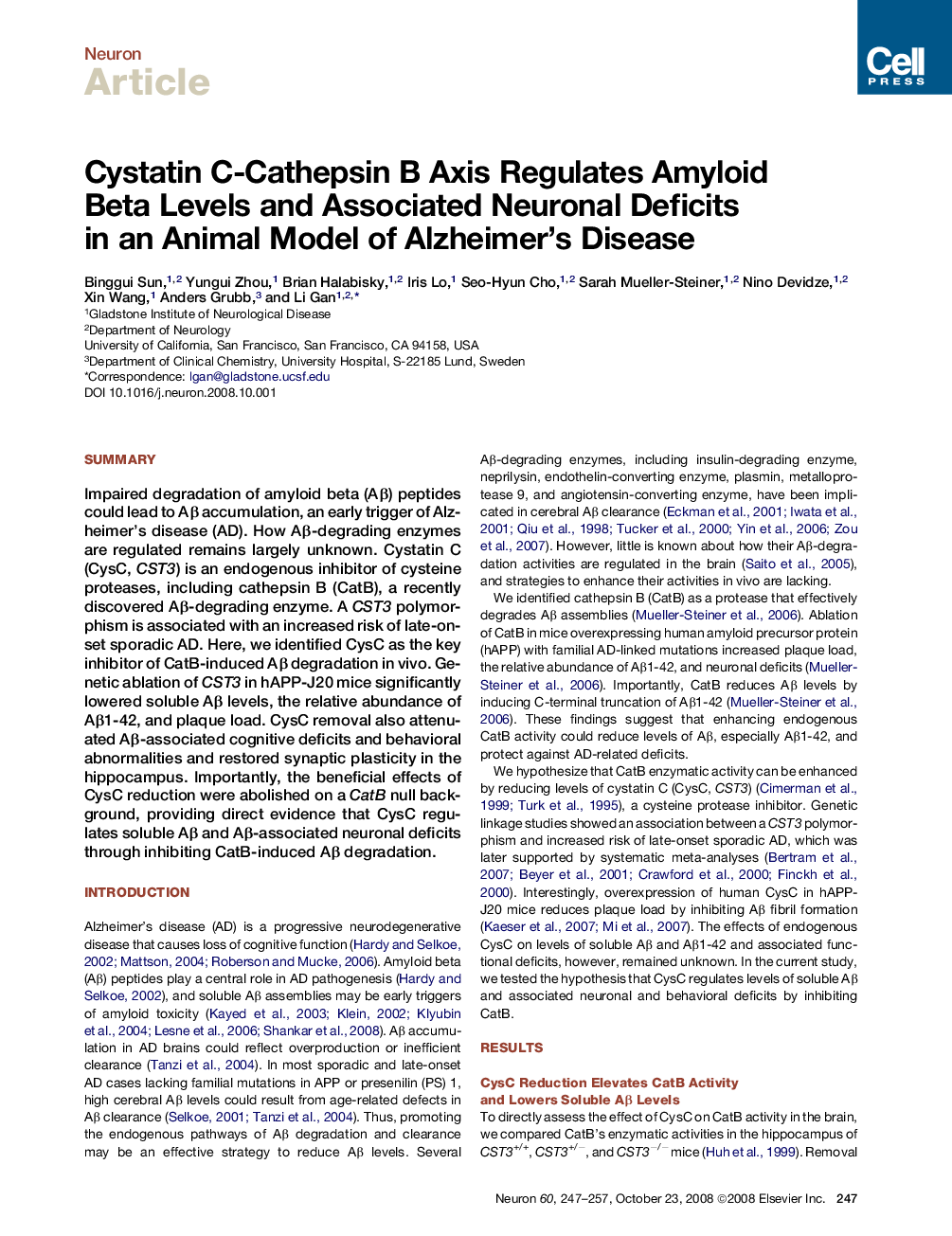| Article ID | Journal | Published Year | Pages | File Type |
|---|---|---|---|---|
| 4323044 | Neuron | 2008 | 11 Pages |
SummaryImpaired degradation of amyloid beta (Aβ) peptides could lead to Aβ accumulation, an early trigger of Alzheimer's disease (AD). How Aβ-degrading enzymes are regulated remains largely unknown. Cystatin C (CysC, CST3) is an endogenous inhibitor of cysteine proteases, including cathepsin B (CatB), a recently discovered Aβ-degrading enzyme. A CST3 polymorphism is associated with an increased risk of late-onset sporadic AD. Here, we identified CysC as the key inhibitor of CatB-induced Aβ degradation in vivo. Genetic ablation of CST3 in hAPP-J20 mice significantly lowered soluble Aβ levels, the relative abundance of Aβ1-42, and plaque load. CysC removal also attenuated Aβ-associated cognitive deficits and behavioral abnormalities and restored synaptic plasticity in the hippocampus. Importantly, the beneficial effects of CysC reduction were abolished on a CatB null background, providing direct evidence that CysC regulates soluble Aβ and Aβ-associated neuronal deficits through inhibiting CatB-induced Aβ degradation.
